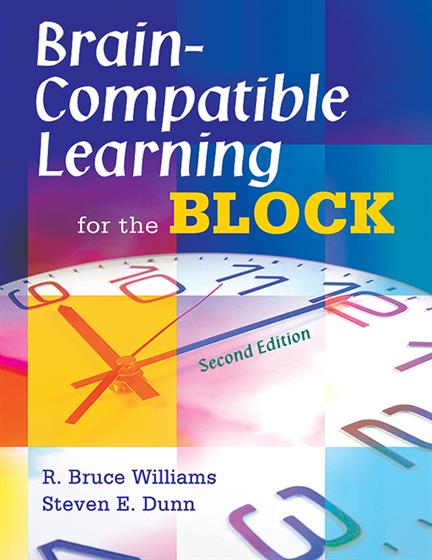
Hands-on, Practical Guidance for Educators
From math,
literacy, equity, multilingual learners, and SEL, to assessment, school counseling,
and education leadership, our books are research-based and authored by experts
on topics most relevant to what educators are facing today.
Brain-Compatible Learning for the Block
Use brain-friendly strategies to maximize the benefits of extended time formats!
Written for novice and veteran middle school and high school educators, this revised edition demonstrates how block scheduling can increase instructional effectiveness and enhance the learning experience for all students. A practical toolbox for teaching in extended time formats, this book focuses on a four-phase lesson model of inquiring, gathering, processing, and applying. This second edition:
- Provides detailed sample lesson plans
- Examines how extended time formats impact student achievement
- Explores various alternative scheduling formats
- Offers updated research related to brain-based learning and block scheduling
- Grade Level: PreK-12
- ISBN: 9781412951845
- Published By: Corwin
- Year: 2007
- Page Count: 224
- Publication date: December 14, 2007
Price: $39.95
For Instructors
When you select 'request review copy', you will be redirected to Sage Publishing (our parent site) to process your request.
Other Titles in: Brain-Friendly Teaching & Learning | Middle School Teaching Methods | High School Teaching Methods



